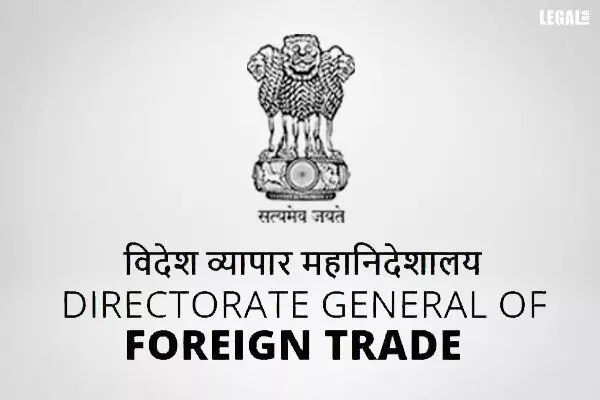- Home
- News
- Articles+
- Aerospace
- Agriculture
- Alternate Dispute Resolution
- Banking and Finance
- Bankruptcy
- Book Review
- Bribery & Corruption
- Commercial Litigation
- Competition Law
- Conference Reports
- Consumer Products
- Contract
- Corporate Governance
- Corporate Law
- Covid-19
- Cryptocurrency
- Cybersecurity
- Data Protection
- Defence
- Digital Economy
- E-commerce
- Employment Law
- Energy and Natural Resources
- Entertainment and Sports Law
- Environmental Law
- FDI
- Food and Beverage
- Health Care
- IBC Diaries
- Insurance Law
- Intellectual Property
- International Law
- Know the Law
- Labour Laws
- Litigation
- Litigation Funding
- Manufacturing
- Mergers & Acquisitions
- NFTs
- Privacy
- Private Equity
- Project Finance
- Real Estate
- Risk and Compliance
- Technology Media and Telecom
- Tributes
- Zoom In
- Take On Board
- In Focus
- Law & Policy and Regulation
- IP & Tech Era
- Viewpoint
- Arbitration & Mediation
- Tax
- Student Corner
- AI
- ESG
- Gaming
- Inclusion & Diversity
- Law Firms
- In-House
- Rankings
- E-Magazine
- Legal Era TV
- Events
- News
- Articles
- Aerospace
- Agriculture
- Alternate Dispute Resolution
- Banking and Finance
- Bankruptcy
- Book Review
- Bribery & Corruption
- Commercial Litigation
- Competition Law
- Conference Reports
- Consumer Products
- Contract
- Corporate Governance
- Corporate Law
- Covid-19
- Cryptocurrency
- Cybersecurity
- Data Protection
- Defence
- Digital Economy
- E-commerce
- Employment Law
- Energy and Natural Resources
- Entertainment and Sports Law
- Environmental Law
- FDI
- Food and Beverage
- Health Care
- IBC Diaries
- Insurance Law
- Intellectual Property
- International Law
- Know the Law
- Labour Laws
- Litigation
- Litigation Funding
- Manufacturing
- Mergers & Acquisitions
- NFTs
- Privacy
- Private Equity
- Project Finance
- Real Estate
- Risk and Compliance
- Technology Media and Telecom
- Tributes
- Zoom In
- Take On Board
- In Focus
- Law & Policy and Regulation
- IP & Tech Era
- Viewpoint
- Arbitration & Mediation
- Tax
- Student Corner
- AI
- ESG
- Gaming
- Inclusion & Diversity
- Law Firms
- In-House
- Rankings
- E-Magazine
- Legal Era TV
- Events
DGFT notifies procedure for general authorization for export after repair

DGFT notifies procedure for general authorization for export after repair
The Director General of Foreign Trade (DGFT) has notified the procedure for general authorization for export after repair in India (GAER).
The export of imported Special Chemicals, Organisms, Materials, Equipment, and Technologies (SCOMET) items to the same entity abroad after repair in India will be allowed on the basis of a one-time GAER subject to post-reporting on a quarterly basis issued by DGFT, subject to the various conditions.
The SCOMET items were imported to a designated/authorized repair facility in India for the purpose of repair under a contract agreement/Master Service agreement (MSA). The items are imported under a contract agreement between the Indian exporter, the entities of the repair facility (if different from the exporter), and the entity abroad defining a Statement of Work (SOW) or Scope of Work, including conditions for undertaking repair in India.
The items are to be exported to the same entity and location abroad from which they have been imported. The exporter is required to register and obtain general authorization for export after repair only once during the validity period. Subsequent export/re-export is subject to post-reporting.
The exporter is required to provide a Bill of Entry for the imported item while applying for GAER for the first shipment.
A general authorization for export after the repair is valid for one year from the date of issuance, subject to subsequent post-reporting (s) within 30 days of the date of such export.
The original characteristics/specifications of the SCOMET item(s) have not changed after repair, and no value addition has occurred during the repair work.No export authorisation would be granted when the initial export authorisation has been suspended, modified or revoked by the country of import.
It would require proof of import of the item and proof of obligation for the repair of defective or damaged items.
The GAER issued for the export of repaired imported SCOMET items is valid for one year from the date of issue, subject to subsequent post-reporting (s) within 30 days of such export.GAER cannot be re-validated in terms of Paragraph 2.80 of HBP of FTP 2015-20.



